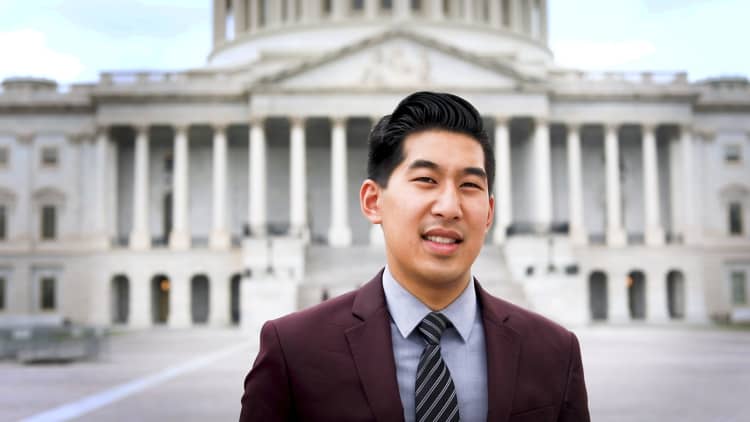A majority of Americans agree that the unequal distribution of income and opportunity in the U.S. has gotten to be too much.
Economic inequality in the U.S. is rising. It has increased exponentially since the 1980s, according to a new Pew Research Center report on the topic. In 1980, the households that ranked in the top 10% of earners had about nine times the income as those in the bottom 10% of earners. In 2018, the top 10% of earners had about 12.6 times more than households at the bottom. That's a 39% increase, according to Pew.
Those demographic changes have become a rallying cry for several politicians seeking the Democratic presidential nomination, so it's no surprise that more Democrats see this as a major issue than Republicans. About 78% of those who identify as Democrats say there's too much economic inequality, while about 41% of Republicans agree, according to the Pew Research Center survey.
https://twitter.com/thehill/status/1214992919972630528
Younger Americans are also more likely to agree: 71% of those 18 to 29 say there is too much economic inequality in the U.S. today, compared to just 52% of those over 65. It's worth noting, however, that millennials and Gen Z also are more likely to identify as Democrats, Ruth Igienik, a senior researcher at Pew, tells CNBC Make It.
Among Republicans, 58% of younger voters in the party more likely to say there's too much economic inequality compared to just 28% of older members. As expected, there's not a significant difference in viewpoints among Democrats when broken down by age, Igienik adds.
A problem, but not a priority
While most Americans can agree economic inequality is a problem, less than half (42%) say addressing this issue should be a top priority for the government. Americans ranked creating affordable health care, fighting drug addiction, making college more affordable, fixing the federal budget deficit and solving climate change all as more pressing priorities than economic inequality.
"People do not rank economic inequality particularly high when they're thinking about priorities," Igienik says. It's worth noting, however, that many experts have pointed to economic inequality, particularly income inequality, as a key contributor to issues around health care, education and even drug addiction recovery.
Some of that may come down to the fact that there's no real consensus on what factors are contributing the most to this increase. When split among party lines, Democrats tend to point to structural barriers as the cause, while Republicans are more likely to say personal decisions are the biggest contributor.
When it comes to solving these issues, Americans across the board believe the federal government should be responsible for solving economic inequality, with most pointing to closing the skills gap as the potential solution for inequality.
"Overwhelmingly, Americans who say there's too much inequality say that in order to address it, people should be investing in education and job training programs, rather than giving direct assistance," Igienik says.
Don't miss: Millennials with debt feel more confident—and 40% expect to wipe out their balances in less than 5 years
Like this story? Subscribe to CNBC Make It on YouTube!



